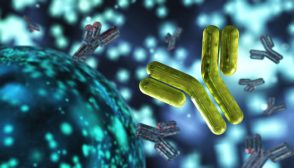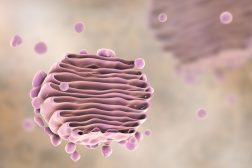Definition
noun
An assay used for virus isolation and purification, and to determine viral titers.
Supplement
The plaque assay is originally a virological assay developed to count and measure infectivity of bacteriophages. Later, it was applied to count mammalian viruses as well. The plaque assay remains to be the most widely used technique for virus isolation and purification, and to determine viral titers. The basis of the technique is to measure the ability of a single infectious virus to form a “plaque” on a confluent monolayer culture of cells. A plaque is formed as a result of infection of one cell by a single virus particle followed by the replication of that virus, and eventually, the death of the cell. The newly replicated virus particles will then infect and kill surrounding cells. The culture will then be stained with a dye, which stains only viable cells but not the dead cells. Hence, the dead cells in the plaque will appear unstained against the colored background.
Nowadays, the plaque assay is applied to detect cells producing antibodies that destroy erythrocytes (by hemolysis). The basis is the clear plaque that indicates the red blood cells have been hemolysed by the antibodies.
Dictionary > Plaque assay
You will also like...

Passive and Active Types of Immunity
Lymphocytes are a type of white blood cell capable of producing a specific immune response to unique antigens. In thi..

Freshwater Community Energy Relationships – Producers & Consumers
This tutorial looks at the relationship between organisms. It also explores how energy is passed on in the food chain an..

A Balanced Diet – Minerals and Proteins
Proteins and minerals can be derived from various dietary sources. They are essential for the proper growth and developm..

Digestion and Absorption of Food
The gastrointestinal system breaks down particles of ingested food into molecular forms by enzymes through digestion and..

Role of Golgi Apparatus & Endoplasmic Reticulum in Protein Synthesis
The endoplasmic reticulum and Golgi apparatus are the organelles involved in the translation step of protein synthesis a..

Plant Water Regulation
Plants need to regulate water in order to stay upright and structurally stable. Find out the different evolutionary adap..

